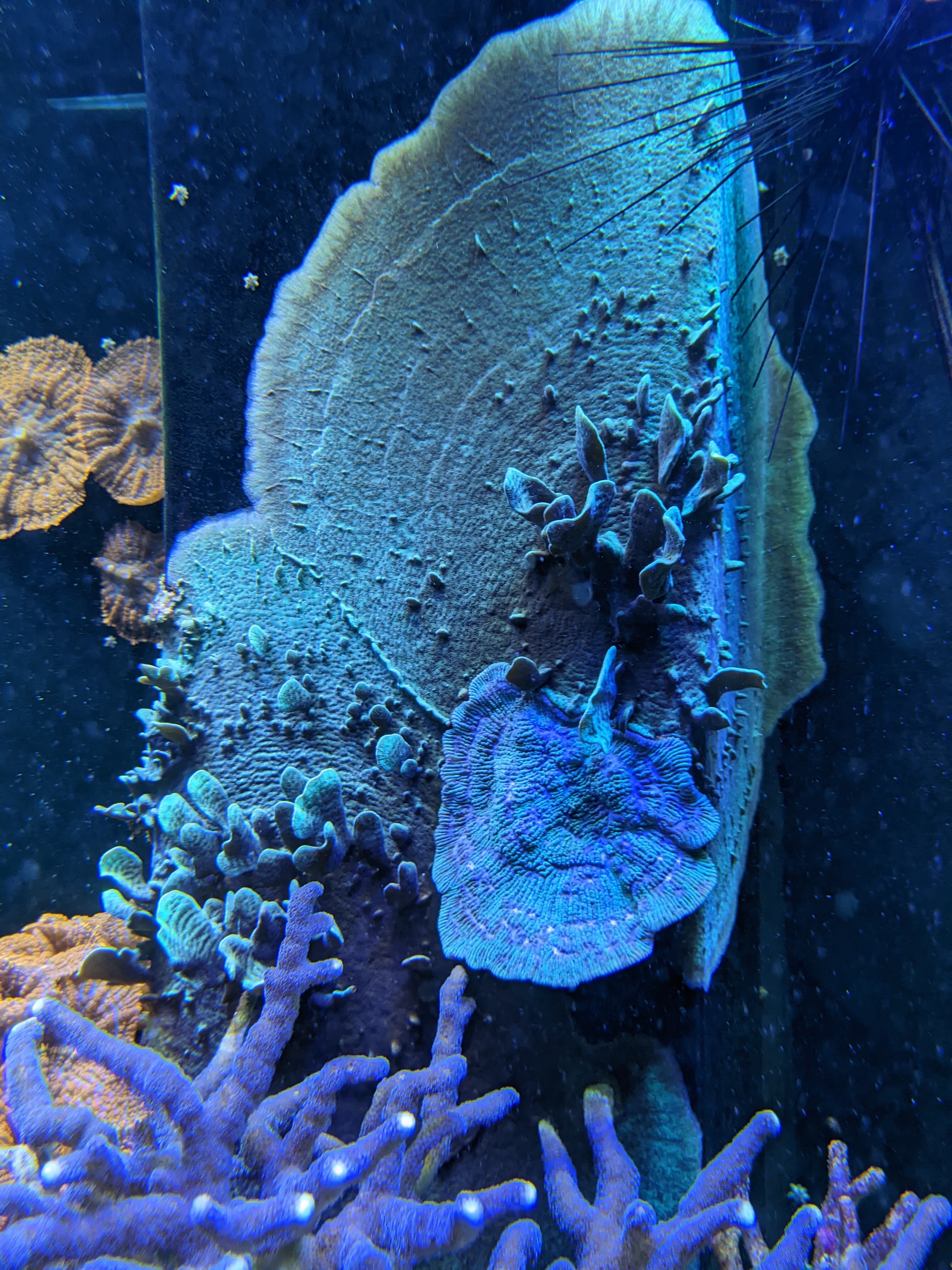Sounds like "Old Tank Syndrome" which from my experience isn't tied to nitrates and phosphates at all. It is fixable but it does take patince as you are altering the equilibrium of the system. For a better understanding of how algae and corals are competing against each other I'd Suggest Forest Rohwer's
book and
video. Both deal with the conflicting roles of the different types of DOC in reef ecosystems and best expalin what I've seen over the 4 decades I've kept reef systems and 3 decades maintaining reefs systems professionally. While there is overlap bewteen his book and the video both have information not covered by the other and together give a broader view of the complex relationships found in reef ecosystems
For starters as far as the algae on the glass if you're just using an algae magnet it only knocks it off and it will quickly resettle continuing to grow. Use
paper towels to wipe it off and physically remove it (I prefer the blue shop towels available at home centers and autoparts stores.) Use each towel for just one or two swipes across the glass.
I'd do weekly 10% water changes and use
steel straws to scrape and remove algae from the rock work especially around corals. If there are any rocks not essential for the aquascaping and don't ahve any corals attached I'd remove them, if you want to resue them, clean them well with fresh water and let them dry out well in sunshine before retruning them to your system. Any aquascaping that can be easily removed should be scrubbed in a bucket of saltwater and returned to the system. This can be done carefully with most corals still attached, you'll have to use your judgement though on what to leave in the tank. I would not scrub algae off in hte tank or use a filter sock to siphon off algae/cyano and return the water to the tank - both dump DOCs into the system detrimental to corals and this is what we want to remove most of all. Manual removal of the algae faciliates this by reducing the amounts released andf letting your corals reestablish the microbial stuff beneficial to them.
Patience is required as there will be some push and shove as you alter the microbial stuff going on in your system. If you can run a diatom filter once or twice for 24-48 hours after doing a water change and scrubbing the rocks it will help but they are a hassle to setup and clean out.
Here's two threads I have on the local forum. The first system had maintenance done every 2 - 3 weeks and it was about 4 months to see algae stop growing. The second system saw weekly maintenance and the process was noticeably quicker. I need to emphasize thought every ssytem is different and recovery time is variable In the first system there was no significant change in either nitrate or phosphate until after the algae stopped growing. The second system nitrate wasn't tested but phosphate increased as the algae disappeared.
Nuisance algae in reef systems is pretty much a ubiquitous problem, and one that is a common source of frustration for reef aquarists. It is also one I've learned to view the problem very differently than what is generally portrayed and it just takes a few rather basic steps, and patience. (This ...

www.austinreefclub.com
Nuisance algae in reef systems is pretty much a ubiquitous problem, and one that is a common source of frustration for reef aquarists. It is also one I've learned to view the problem very differently than what is generally portrayed and it just takes a few rather basic steps, and patience. (This ...

www.austinreefclub.com
(A few notes about nitrates and phosphates. Becasue we can easily test for these "dissolved inorganic" forms of nitrogen and phosphorus they get most of the attention. Keep in mind our ssytems also have "particulate organic" forms and "dissolved organic" forms so the picture will always be more complex than we can test for. To add another layer of complexity we're also dealing with the same forms of carbon in our ssytems and the "dissolved organic carbon" or DOCs has huge implications for coral health, see Rohwer's refferences above. Much ado has been made over rock absorbing phosphate and releasing it. Bare carbonate substrates will grab phosphate and can release it. What has been overlooked (again likely because we can't readily test for it) biofilms will signficantly alter the sorbtion properties of the substrates they grow on. And thier composition will change over time so we should expect changes in our system to occur at any time and there may not be any obvious cause because we cannot monitor these processes.)


